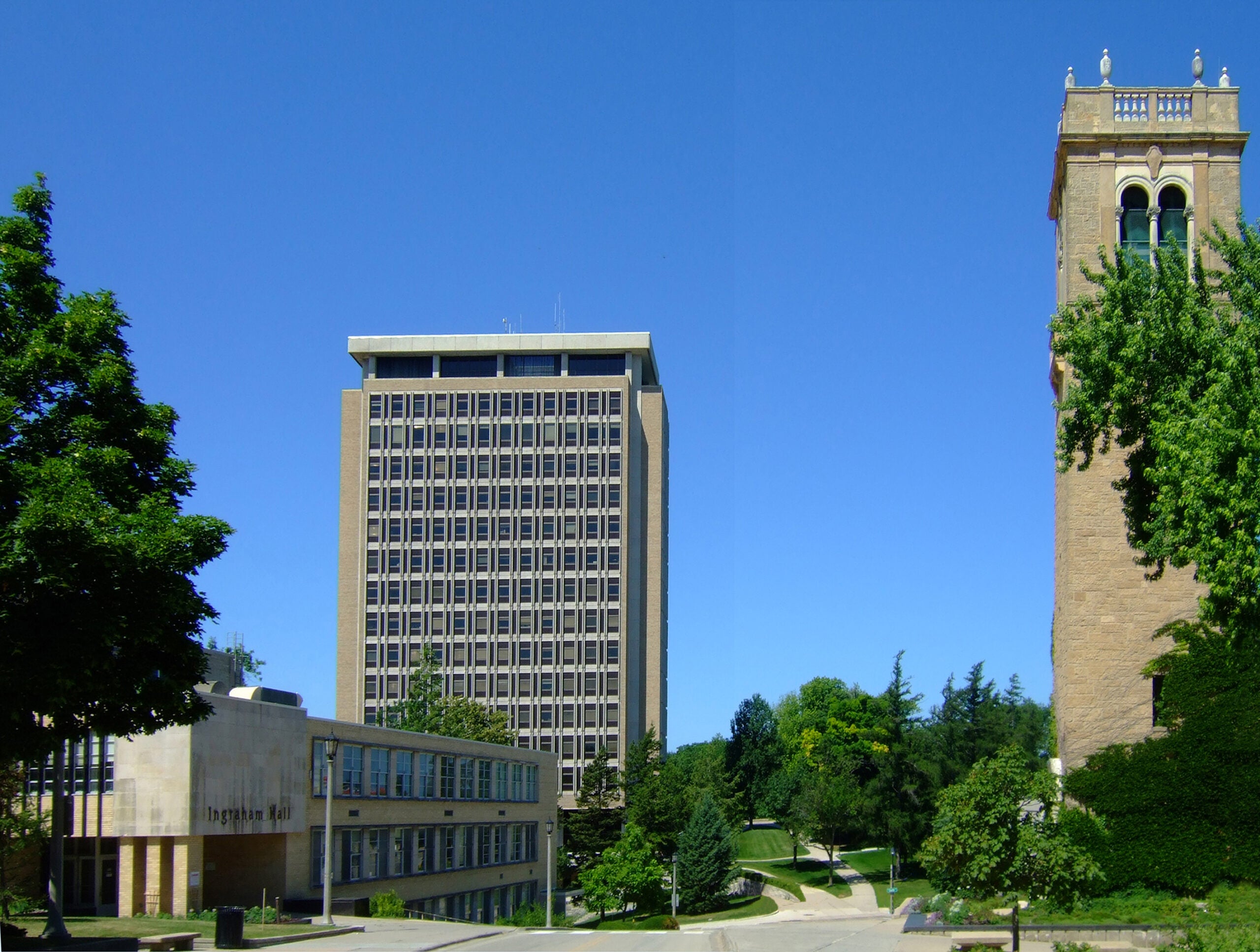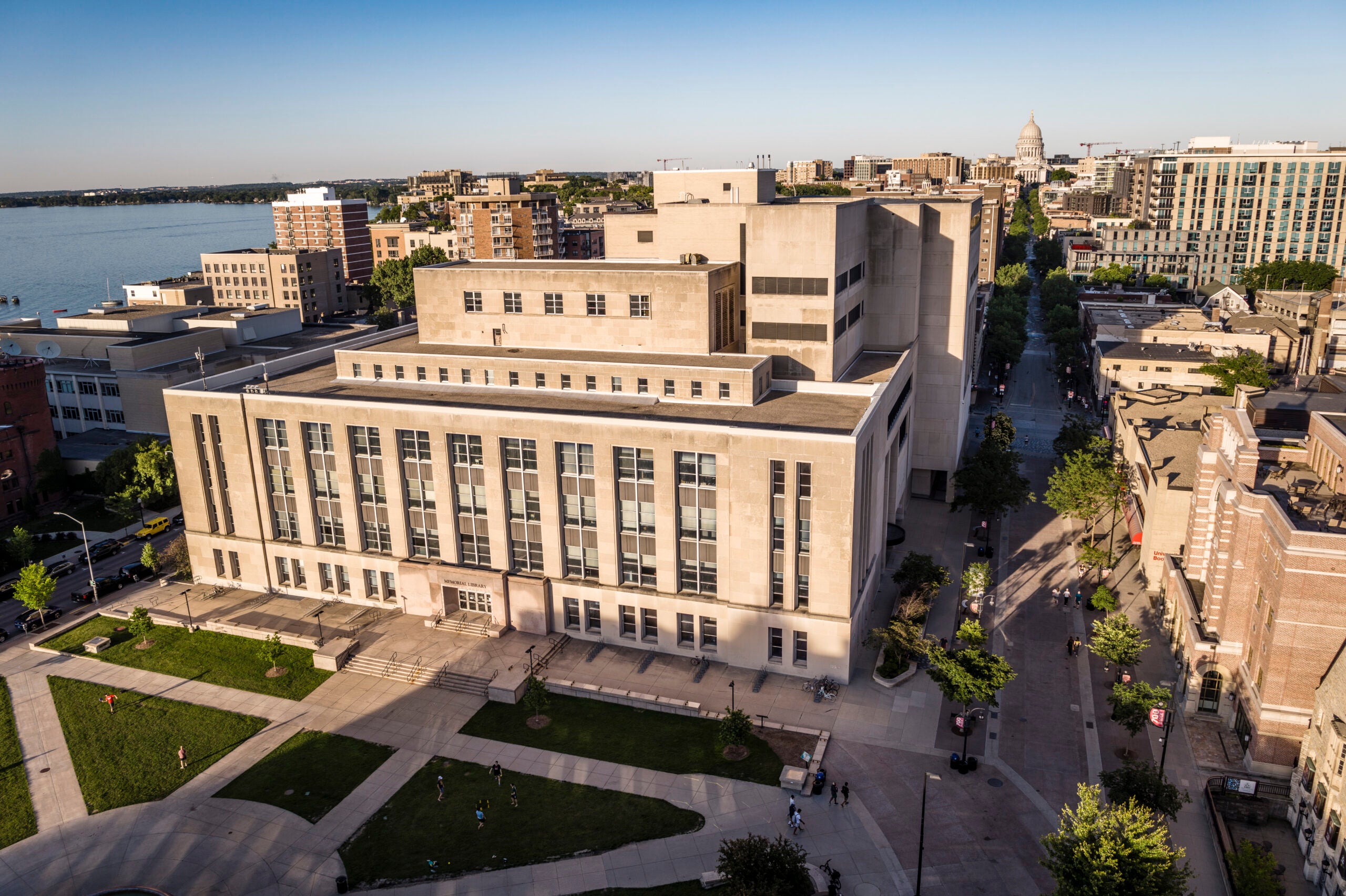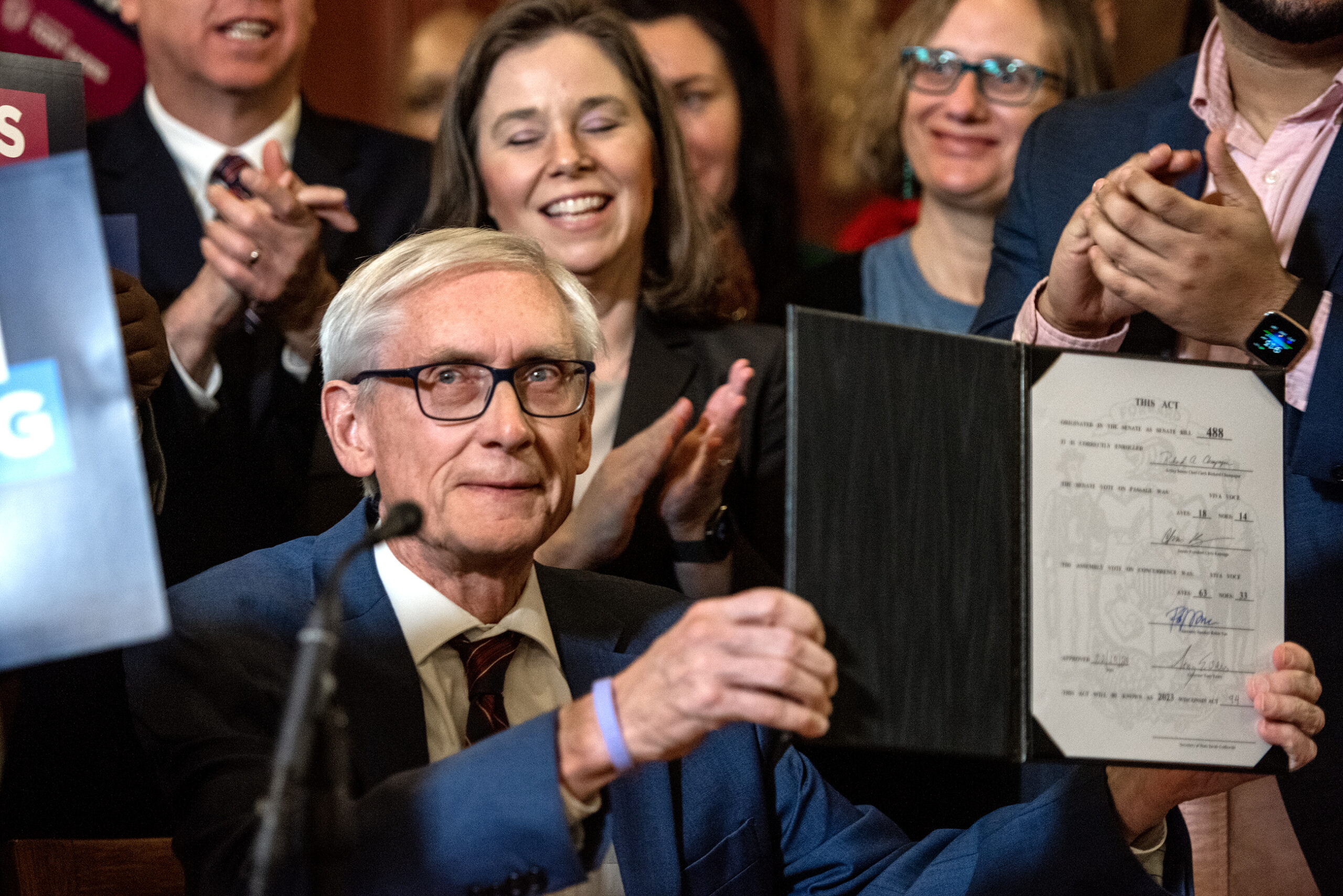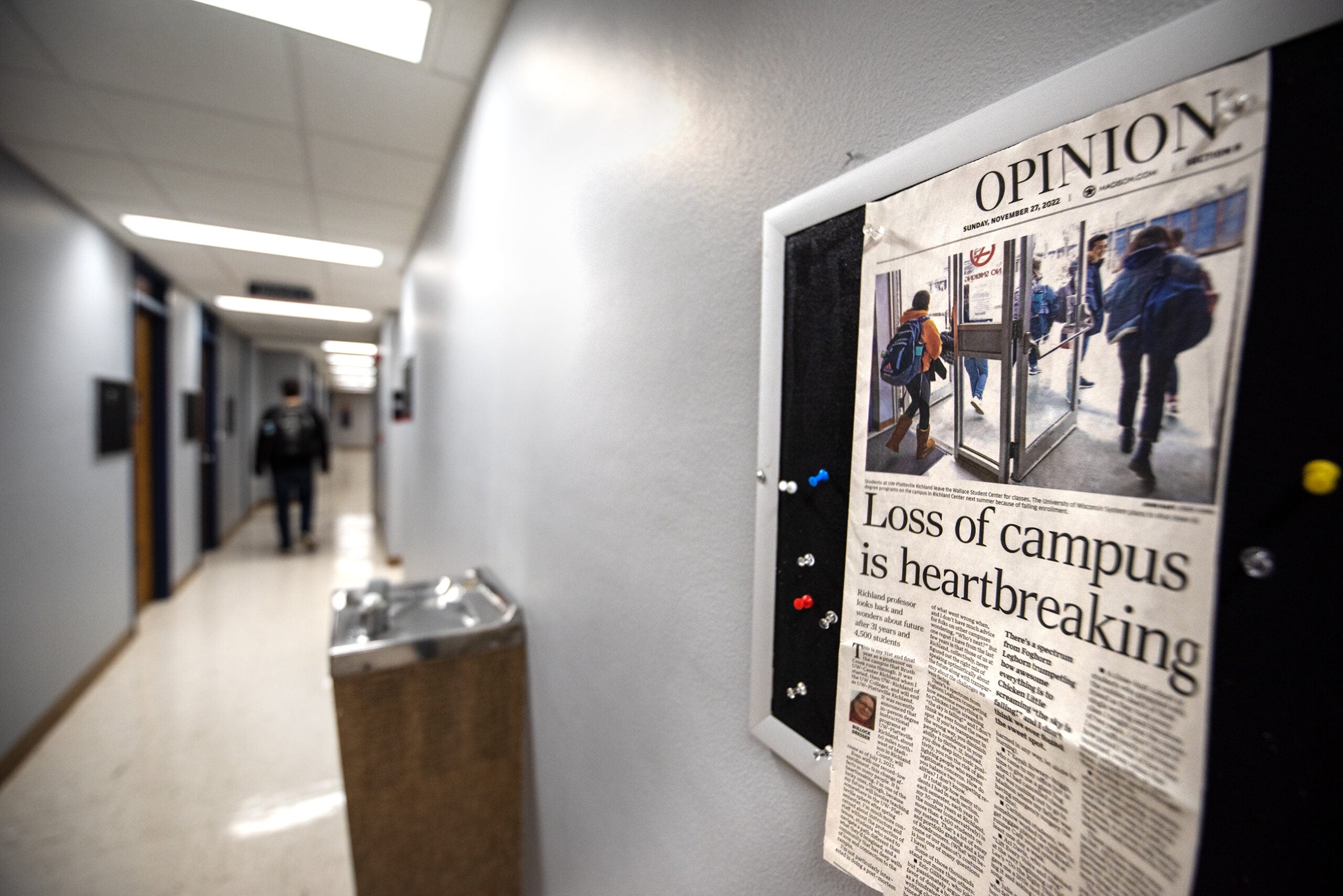Conservative leaning organizations are taking issue with a University of Wisconsin System Board of Regents policy proposal mandating suspension and expulsion for students who repeatedly disrupt free speech on campus. The groups say the punishments will likely create a chilling effect on campus speech.
On Friday, Regents voted to proceed with the rulemaking process for a policy requiring suspension of students caught “materially and substantially” disrupting speakers or the free speech of other students on two occasions. Under the proposal a student disrupting a third time would have to be expelled from campus. The punishments are part of a greater Regent policy titled “Committment to Academic Freedom and Freedom of Expression created in 2017.
On Monday, the Charles Koch Institute, a free-market nonprofit organization, emailed a statement to WPR opposing the mandatory sanctions proposed by the Board of Regents.
News with a little more humanity
WPR’s “Wisconsin Today” newsletter keeps you connected to the state you love without feeling overwhelmed. No paywall. No agenda. No corporate filter.
“Punishing students for their expression is not how you promote free speech. Imposing mandatory minimum punishments without even defining for students what actions will subject them to that punishment will stifle campus dialogue rather than enrich it,” said institute senior fellow Casey Mattox.
In a follow up interview with WPR, Mattox said while numerous states have enacted policies aimed at affirming free speech on campus, Wisconsin is one of the only states he’s seen adopt language requiring punishments for those in violation. Mattox also said the types of violent or disruptive incidents that spawned policies like the one proposed by the Board of Regents in 2017 have been less common in recent years.
“This is not the great crisis,” said Mattox. “The significant problem I think we need to be looking at is whether the university’s own rules policing student conduct are constitutional and promote free expression not trying to penalize students because they are, in fact, engaged in expression with one another.”
The idea for mandatory punishments for students disrupting free speech on UW campuses started in the Wisconsin State legislature in 2017. That’s when Republican members of the state Assembly introduced a bill requiring the Board of Regents to adopt a policy on free expression covering all two and four year campuses. The legislation also required suspension and expulsion for students disrupting free speech on two and three occasions respectively.
According to an informational paper released by the nonpartisan Wisconsin Legislative Reference Bureau, that bill was inspired by model legislation created by the conservative leaning Goldwater Institute. It stipulated that “Any student who has twice been found responsible for infringing the expressive rights of others will be suspended for a minimum of one year or expelled.”
The Republican push for a free speech policy passed the state Assembly in June 2017 but eventually died in the state Senate. Nearly identical language was introduced by the Board of Regents in October 2017.
In order for the mandatory punishments to be effective state administrative rules governing the UW System need to be changed. Doing that requires a series of public hearings and regent votes.
During a preliminary public hearing in August Regents received 38 written comments on the proposed “scope statement” for the rule. According to a UW System summary the only comment in support of the policy proposal came from a Michagan woman who thought it would “help conservatives and Christians on campus.”
The conservative Wisconsin Institute for Law and Liberty (WILL) was among the groups and individuals writing in opposition of mandatory punishments included with the policy’s scope statement.
In an interview with WPR, Rick Esenberg who founded WILL, said people don’t have a constitutional right to physically disrupt someone from speaking. But Esenberg says the ability to levy such punishments has to be clearly and narrowly defined and the regents policy doesn’t do that.
“I don’t think the effort itself is wrong but this is an area where it has to be done in the right way or it would be better to not do it at all,” Esenberg said. “And so our suggestions to the regents were ‘Look, we understand what you’re getting at. We’re sympathetic to that but it needs to be done in a somewhat better way.’”
The national Foundation for Individual Rights in Education (FIRE) also took issue with the punishments during the Regents public hearing in August. The organization describes itself as a nonpartisan, nonprofit that defends liberty and freedom of speech across the country.
In an interview with WPR, FIRE’s vice president of legal and public advocacy Will Creeley said “the best response to speech one doesn’t like is more speech not vigilante censorship.”
“But the mandatory minimum provision ties the hands of the administrators who are on the scene and will know best,” Creeley continued. “It has an unfortunate way of bulldozing context and eliminating nuance.“
Creeley said FIRE is watching the regents and UW closely as it proceeds with the proposed rule.
Just after the UW Board of Regents voted Friday on the proposed punishments for students disrupting free speech on campus, Gov. Tony Evers signaled opposition to the measure. An Evers spokeswoman said he opposed the policy in 2017 when he sat on the board and continues to oppose it now.
State Sen. Chris Kapenga, R-Delafield, issued a press release with the headline “Governor Evers sides with agitators, blocking Board of Regents free speech policy.” In an interview with WPR Kapenga said mandatory suspension and expulsion for students who repeatedly disrupt speakers and free speech are needed.
“I think there needs to be repercussions for it,” said Kapenga. “Now, maybe somebody doesn’t agree that the ones we put down and the ones that the regents are actually proposing are reasonable. Well, let’s have that discussion then. But I still think that if you don’t put something in place what’s going to prohibit somebody from doing it?”
Kapenga and fellow republicans re-introduced legislation that would require the UW System to punish students in August but he said there isn’t much that can be done if Evers objects.
“If he overrules it, essentially the regents cannot put the policy in place and then the only option is to legislate it and he doesn’t have to sign the bill,” Kapenga said. “I want to put him in that position though, to pressure him to publicly go against free speech. I think it’s fundamentally wrong.”
Wisconsin Public Radio is a service of the University of Wisconsin-Madison and the Wisconsin Educational Communications Board.
Wisconsin Public Radio, © Copyright 2026, Board of Regents of the University of Wisconsin System and Wisconsin Educational Communications Board.






